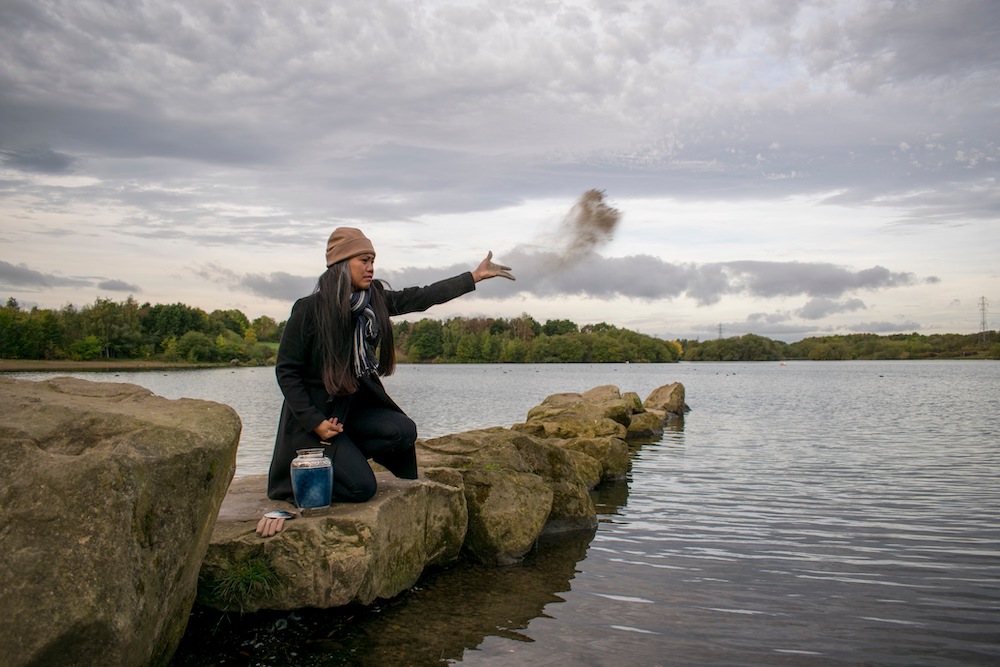A recent Funeral Solution Expert consumer study asked 1,500 UK adults how they feel about cremated ashes – what they mean to them, what they do with them, and how environmental considerations may shape their use. FSE Director Simon Cox shares the headlines.
The vast majority of us (over 80%) involved in arranging a cremation say ashes are meaningful in some way, or are very important. Less than 20% say ashes are unimportant and “just ashes”.
With approximately 2.7kg of ash created from each cremation process and 79% of UK deaths (669,000 in 2021) resulting in cremation, the UK produces around a 1.4 million kilo mountain of ash each year.
The fact that other recent insight tells us 61% mistakenly believe cremated ‘ashes’ are somehow positive for the environment will lead to future conflict, as awareness grows (of the toxicity of cremated ashes) amongst the 79% of consumers who say they’d prefer a more environmentally-friendly funeral.
Ashes are ashes – you just scatter or inter
Funeral directors don’t need to be told funerals have evolved, with consumer behaviour changing rapidly in almost every aspect of funerary tradition.
What we do with mortal remains is no different with more personal, environmental, and portable solutions increasingly available. Scattering or interring at the crematorium might still be the most popular destination – but perhaps not for much longer.
It’s certainly not the most pressing question for a funeral director at the time of arranging a funeral, but there are clear signs consumers want more choice and control over what happens to ashes.
What are consumers doing now

The most common destination for ashes is still for them to be buried or scattered at a crematorium, with 30% (more than 150,000 families) doing this each year.
But almost as many want ashes returned so they can have a final goodbye in a place that was special. Maybe a favourite river, beach, or walk.
And perhaps linked to greater environmental considerations; burying ashes and planting a living memorial (tree or plant) is growing in popularity with 14% (around 75,000 families) choosing this route.
Just over 1 in 10 (11%) want the ashes close or can’t decide what to do, so keep them at home.
As we saw at the National Funeral Exhibition, an increasing number of firms (such as Hand On Heart Jewellery, Remembrance Glass and Scattering Ashes) offer solutions to convert ashes into ‘something special’ – which can be personal, portable and permanent. Whilst still at relatively low levels (6.1%) we expect this upward trend to continue and particularly as ‘celebration of life’ trends overtake more traditional views and practices.
And finally, some (4%) still leave ashes uncollected in funeral director homes or crematoria.
Give more choice and control to the consumer
In reality, when grief is at its most raw during the funeral arrangement process, families are mostly focused on the funeral and may prefer to make a decision about what to do with the ashes after this has taken place. But without really understanding available options, the bereaved often default to burial or scattering at the crematorium. It’s likely many of the 150,000+ who do this would consider something more meaningful.
Hence, forward-thinking FDs are giving more choice and control to consumers by suggesting a return of ashes and signposting more meaningful, sustainable options. Whether scattering in a memorable place, planting a living memorial, or turning them into something special.
Planting or scattering ashes at crematoria is also not without environmental issues. Private and local authority crematorium owners are realising their grounds and plants often suffer from the long-term negative impacts on root structures caused by high Sodium and pH levels in cremated remains.
Environmental considerations of plant memorials
Planted memorials are increasingly popular – but no-one wants them to fail, whether in a crematorium, a special place or their own garden. Or to feel like they are doing more damage to our fragile environment.
A solution to this issue exists in the form of an organic soil blend which balances the negative effects of cremated remains and encourages plant growth. This soil blend, developed by Living Memorial (a Nottinghamshire-based company), is gaining popularity amongst increasingly environmentally-aware consumers and gaining traction with crematoria owners seeking to mitigate or reinvigorate damaged grounds.
IN SUMMARY
Changing consumer behaviour provides funeral directors with many different challenges, and while this aspect of a funeral director’s role may be of lower priority, offering more meaningful and sustainable solutions which funeral directors can guide and fulfil means a happier customer and ultimately more reward.
There is little doubt that with 80% of us feeling real connection with our departed loved ones through their ‘ashes’, we will increasingly seek more considered and special use.

